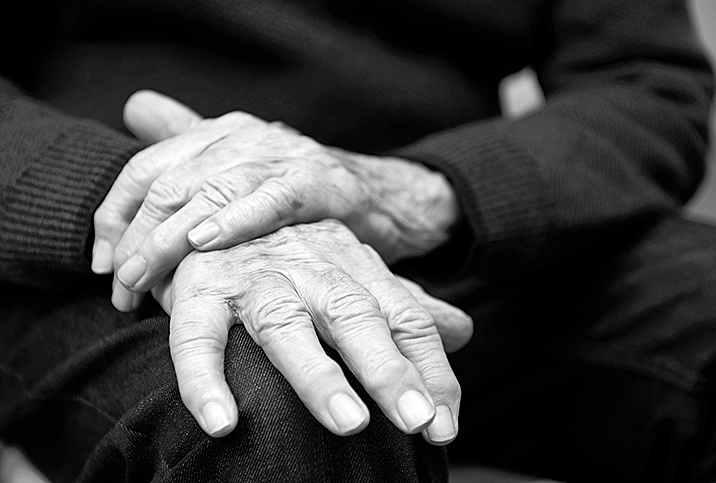Yes, Great Sex Is Still Possible With Parkinson's Disease

Anyone can struggle with physical intimacy, whether you have a chronic disease or not.
If you have Parkinson's disease (PD), though, you may experience new and bigger challenges. You just have to find different ways to rekindle your sex life.
"We want to help couples explore physical connection—whatever that may mean for them, knowing that it may look different for everyone," said Rebecca Gilbert, M.D., Ph.D., the chief scientific officer for the American Parkinson Disease Association (APDA), Staten Island, New York.
The challenges of PD
Parkinson's disease affects more than 10 million people worldwide, more than 1 million of whom live in the United States. Symptoms of PD include:
- Tremors
- Fatigue
- Muscular stiffness
- Cognitive issues
- Mood swings
- Speech difficulty
Any or all of those symptoms can impact a sexual relationship.
Erectile dysfunction, vaginal dryness and decreased sexual desire are also common concerns with PD.
However, if you have Parkinson's disease, you're not sentenced to live without intimacy. There are resources you can turn to that will help preserve your overall wellness and the physical connection in your relationships.
"The challenges of Parkinson's can often result in intimacy and connection getting left behind. And we want to change that," said Leslie A. Chambers, M.S.P.H., the president and CEO of the APDA.
A resource to rebuild your intimacy
ParkinSex Booklet & Kit is a project of the APDA, in partnership with Havas Health & You, to help people with Parkinson's disease rekindle their intimacy and sex life.
"People can explore the topic in the comfort of their own home, on their own time, and get some practical ideas that will hopefully increase their quality of life," Gilbert said.
Sexuality remains a topic most people find difficult to broach, even in the privacy of the bedroom. APDA chose not to tiptoe around the topic and launched a resource that encourages the conversation and offers options to the PD community.
The 40-page booklet is an educational guide divided into five chapters. It allows readers to progress at their own pace or focus on aspects that interest them most about intimate relationships.
Gilbert explained that each chapter covers separate topics, including:
- Finding the time for intimacy
- Removing judgments
- Removing preconceived notions of what intimacy should look like
- Ways to incorporate touching
The accompanying kit contains items to facilitate intimacy and connection, such as a candle, massage stones, a feather, a blindfold, massage oil and a bath bomb.
"The book refers to each of these items and suggests how to incorporate them into your life," Gilbert said. "We worked with experts in the field as well as people with PD to make sure the contents were as relevant and appropriate as possible."
It's for everyone, not just those with Parkinson's
"We also made considerable efforts to make this book accessible to all," Chambers explained. "All of the advice and suggestions in ParkinSex can be applied by anyone, to anyone."
They considered aspects such as features for ease of handling, age and ethnic variety in the illustrations, and they avoided using gendered pronouns or mentioning gender-specific body parts.
The reception has been positive, and the 65 pilot test kits sold out within hours. After the launch, they added a video version and a downloadable PDF. In the future, they plan to release Spanish-language versions.
The benefits of physical intimacy
Diseases such as Parkinson's cause people to forget about their physical intimacy for a while. Even if sometimes it feels like there is no room for intimacy, you can try to rebuild this part of your life and find new ways to enjoy it for your own well-being.
"There are physical and emotional benefits of touching, intimacy and connection," Chambers said. "Yet, we know how all-consuming life with PD can feel sometimes, and that's why throughout the booklet we acknowledge and accommodate for the challenges that can come with PD."
APDA wants to help people figure out what works for them.
"Even small efforts and connections can be beneficial," Chambers added. "It doesn't have to be all about actually having sex."
You can enjoy physical connection in many equally pleasurable ways, such as cuddling, caressing, kissing, masturbation and more. Penetration and orgasm are only one path of intimacy and sexual life, not the whole answer.
"We intentionally created ParkinSex in a way that was not solely focused on sex and orgasm because there are so many ways for people to enjoy physical touch and intimacy aside from intercourse," Gilbert said.
Everyone is different; you can go at your own pace. Not every day or time of your day feels the same. Maybe at certain times you are more tired. For example, if you lack energy in the evenings, try changing when you're intimate.
"We know that for some people just laying together and holding hands while listening to some nice music might be a big step toward connecting," Gilbert added. "While others might be eager and able to try out a blindfold and/or feather to ramp up their sensual touching."
Talking to your doctor
It is common for people to experience fear, sadness, frustration and shame in conjunction with sexual dysfunctions. Health professionals encourage talking about physical, emotional and sexual health—to vent or just to think about alternatives.
"Life with PD can present challenges for intimacy such as medication side effects, ON/OFF times, mobility issues, etcetera," Gilbert said. "If they talk to me about those challenges, we can work together to see where and how we can make some improvements."
When dealing with other medical issues associated with Parkinson's disease, the discussion of sexual health often takes a backseat. But that doesn't mean sexual health isn't vital to wellness, she added.
"Speaking with a psychologist, psychiatrist and/or a sex therapist can also be incredibly beneficial, and they can ask their neurologist to refer them," Chambers said.
Tips to rebuild your sex life with PD
"We as medical professionals can help improve the situation. Perhaps through medication adjustments or other recommended lifestyle changes," Gilbert said. "Also, by talking with your partner about your needs, expectations and concerns, you can help each other find solutions that work for you both."
Incorporate some of these options to spice up your relationship:
- Explore your own body, and your partner's body, to find new ways to feel pleasure.
- Include items such as feathers and blindfolds in your erotic play.
- Include toys and vibrators, which can help with stimulation.
- Light candles to set the mood.
- Read erotic stories, on your own and with your partner.
- Spend quality time with your partner in activities you enjoy.
- Try meditation exercises to minimize anxiety.
- Use massage oils or gloves to make your touch more pleasurable.
- Take a relaxing bath before starting.
- Try a sensual massage.
- Turn on your favorite playlist to boost the mood.
- Use lubricant and try new sexual positions.
Always remember that everyone is different. You just have to find the form of intimacy that works best for you.


















